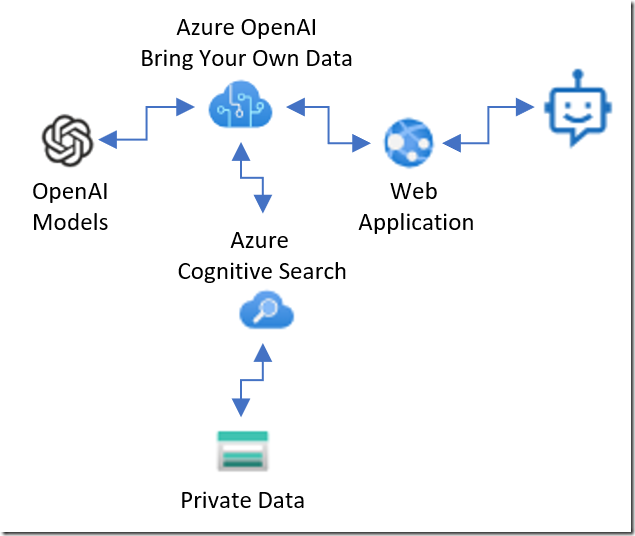Voice Assistant Creation: OpenAI's New Tools For Developers (2024)

Table of Contents
OpenAI's API Enhancements for Voice Assistant Development
OpenAI's commitment to pushing the boundaries of AI is evident in its continuously evolving APIs, specifically designed to streamline voice assistant creation. These enhancements significantly improve the core components of any voice assistant.
Improved Speech-to-Text Capabilities
OpenAI's speech-to-text technology has undergone significant improvements, impacting the accuracy, speed, and multilingual capabilities crucial for effective voice assistant development. The Whisper API, for instance, boasts enhanced accuracy even in noisy environments, leading to better user experiences.
- Reduced latency: Near real-time transcriptions ensure seamless interaction.
- Multilingual support expansion: Support for a wider range of languages opens up global market opportunities for your voice assistant.
- Improved noise cancellation: Advanced algorithms filter out background noise, improving transcription accuracy in diverse settings. This means your voice assistant can understand users even in busy environments like coffee shops or crowded streets. This is a critical improvement for robust voice assistant creation.
Natural Language Understanding (NLU) Advancements
Beyond simply transcribing speech, understanding the intent behind the words is critical. OpenAI's advancements in Natural Language Understanding (NLU) are transforming voice assistant creation. The improvements in context understanding and intent recognition allow for more natural and engaging conversations. OpenAI's GPT models are at the forefront of this progress, enabling more sophisticated dialogue management.
- Enhanced context awareness: The voice assistant can maintain context across multiple turns in a conversation, leading to a more fluid and natural user experience.
- Improved entity recognition: Accurately identifying key entities (names, places, dates) within user requests improves the accuracy of the assistant's response.
- More robust dialogue handling: The ability to handle complex conversations and unexpected inputs results in a more resilient and user-friendly voice assistant.
Enhanced Text-to-Speech Synthesis
The quality of the voice response is paramount to a positive user experience. OpenAI's advancements in text-to-speech (TTS) synthesis deliver more natural, expressive, and customizable voices. This is crucial for creating engaging and personalized voice assistants.
- More lifelike voices: The synthetic voices are becoming increasingly indistinguishable from human speech, leading to a more natural and immersive interaction.
- Emotional range: The ability to convey emotions through voice inflection adds depth and personality to your voice assistant.
- Personalized voice options: Users may soon be able to choose from a variety of voices and accents, customizing their voice assistant experience.
New OpenAI Tools Specifically Designed for Voice Assistant Builders
OpenAI isn't just improving existing APIs; it's also creating new tools specifically for voice assistant creation. These tools significantly accelerate the development process.
Pre-trained Models for Quick Prototyping
OpenAI offers pre-trained models specifically designed for common voice assistant tasks. This eliminates the need for extensive training from scratch, dramatically speeding up development.
- Ready-to-use conversational AI models: These models provide a foundation for building conversational agents, allowing developers to focus on specific features and customizations.
- Intent recognition models: Pre-trained models are available to quickly identify the user's intent within their voice commands.
- Speech synthesis models: These models provide high-quality speech synthesis capabilities, without requiring extensive training data.
Simplified Integration and SDKs
OpenAI prioritizes ease of integration. Its user-friendly APIs and well-documented SDKs allow developers to seamlessly integrate OpenAI's tools into existing workflows.
- User-friendly APIs: Clear documentation and simple API calls make integration straightforward.
- Well-documented SDKs: SDKs for various programming languages (Python, JavaScript, etc.) simplify development and reduce the learning curve.
- Support for various programming languages: Developers can work with their preferred languages.
Addressing Challenges and Considerations in Voice Assistant Creation with OpenAI
While OpenAI provides powerful tools, developers must address ethical and practical considerations during voice assistant creation.
Data Privacy and Security
Protecting user data is paramount. OpenAI adheres to strict data privacy and security protocols.
- Data encryption: Data is encrypted both in transit and at rest.
- Anonymization techniques: Data anonymization techniques protect user privacy.
- Compliance with GDPR and CCPA: OpenAI’s tools are designed to comply with relevant data privacy regulations.
Ethical Implications and Bias Mitigation
AI models can reflect biases present in their training data. OpenAI actively works to mitigate these biases.
- Bias detection and mitigation techniques: OpenAI employs advanced techniques to identify and mitigate biases in its models.
- Fairness guidelines: OpenAI provides guidelines to ensure fair and equitable outcomes in voice assistant development.
- Responsible AI principles: OpenAI promotes responsible AI development and deployment practices.
Unlocking the Power of Voice: Your Journey into Voice Assistant Creation with OpenAI
OpenAI's suite of tools simplifies and accelerates voice assistant creation, providing developers with cutting-edge technology and user-friendly interfaces. The ease of integration, combined with the advanced capabilities of OpenAI's APIs and pre-trained models, allows developers to focus on building innovative and engaging voice assistants. Start building your innovative voice assistant today with OpenAI's powerful tools! Explore the possibilities of voice assistant creation and revolutionize user interaction.

Featured Posts
-
 Celtics Coach On Jayson Tatum Wrist Injury Update
May 09, 2025
Celtics Coach On Jayson Tatum Wrist Injury Update
May 09, 2025 -
 F1 On The Brink Jeremy Clarksons Plan To Avert A Ferrari Dq Crisis
May 09, 2025
F1 On The Brink Jeremy Clarksons Plan To Avert A Ferrari Dq Crisis
May 09, 2025 -
 100 Days Of Trump How Did It Affect Elon Musks Net Worth
May 09, 2025
100 Days Of Trump How Did It Affect Elon Musks Net Worth
May 09, 2025 -
 Bayern Munich Vs Fc St Pauli A Comprehensive Match Preview
May 09, 2025
Bayern Munich Vs Fc St Pauli A Comprehensive Match Preview
May 09, 2025 -
 Shippers Question Trumps Announced Houthi Truce
May 09, 2025
Shippers Question Trumps Announced Houthi Truce
May 09, 2025
Latest Posts
-
 Reaktsiya Na Slova Kinga Mask Ta Tramp Zradniki Za Slovami Pismennika
May 09, 2025
Reaktsiya Na Slova Kinga Mask Ta Tramp Zradniki Za Slovami Pismennika
May 09, 2025 -
 Vozvraschenie Stivena Kinga V X Oskorblenie Ilona Maska
May 09, 2025
Vozvraschenie Stivena Kinga V X Oskorblenie Ilona Maska
May 09, 2025 -
 King Pro Maska Ta Trampa Zrada Chi Politichna Zayava
May 09, 2025
King Pro Maska Ta Trampa Zrada Chi Politichna Zayava
May 09, 2025 -
 King Zvinuvachuye Maska Ta Trampa V Zradi Detali Zayavi Pismennika
May 09, 2025
King Zvinuvachuye Maska Ta Trampa V Zradi Detali Zayavi Pismennika
May 09, 2025 -
 Stephen King 5 Famous Feuds You Might Not Know About
May 09, 2025
Stephen King 5 Famous Feuds You Might Not Know About
May 09, 2025
